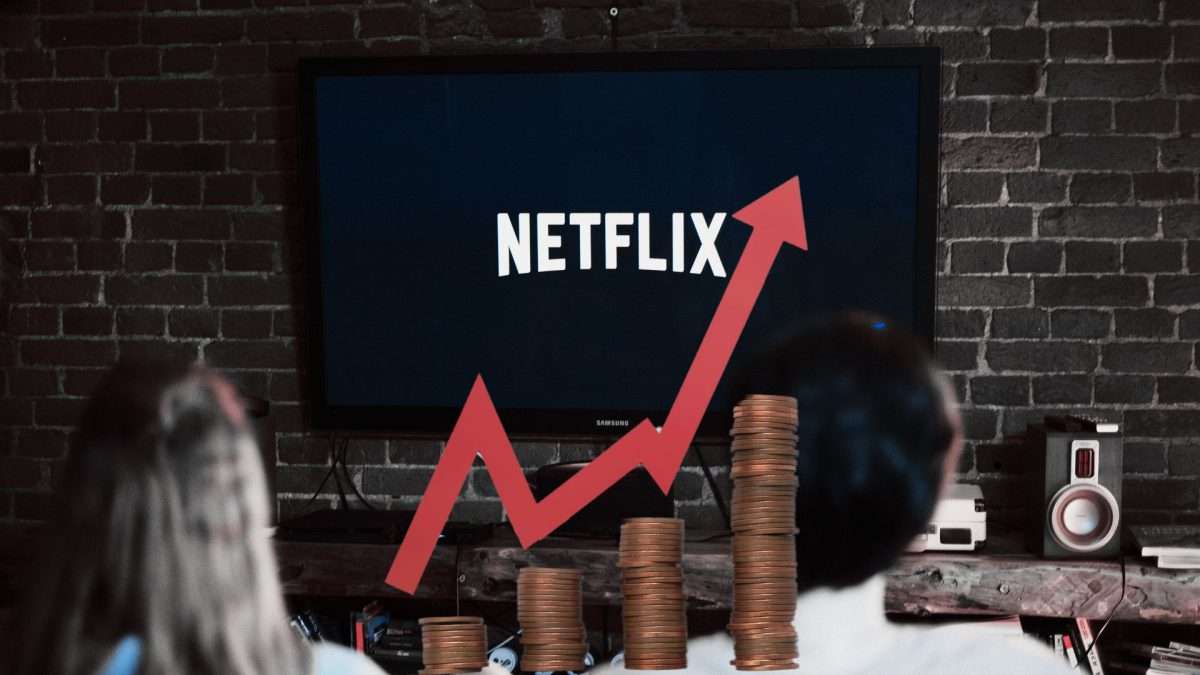Streaming giant Netflix (NASDAQ: NFLX) announced on Tuesday that it has raised its monthly subscription fees by up to $2.50, for the first time in the United States since October 2023.
The Netflix ad-supported Standard plan now costs $7.99 a month — up from $6.99 earlier. The subscription charge for the ad-free Standard plan rises from $15.49 to $17.99 a month. Both Standard plans stream up to 1080p resolution.
Netflix’s Premium tier subscription, which can stream up to 4K resolution, has increased from $22.99 to $24.99 a month.
The higher rates take effect immediately for new subscribers and will apply to current subscribers at the start of their next billing cycle.
Netflix Revenue and Subscribers Soar
Netflix is raising rates amid meteoric subscriber growth. With a record 18.9 million new subscribers in the fourth quarter of 2024, Netflix’s total subscriber count surpassed 300 million worldwide, driven by its ad-supported subscription tier, popular and ever-growing program offerings, and a crackdown on password sharing.
A majority of U.S. households have a Netflix subscription and the service has spread to other markets worldwide, including in Latin America, the Middle East, and Asia-Pacific — with pricing and content tailored to these regions.
Netflix reported a Q4 net profit of $1.87 billion on $10.2 billion in revenue, beating its $1.85 billion forecast. Its operating margin in the fourth quarter was a robust 22.2%. Netflix forecasts it to rise to 28.2% in the first quarter of 2025 — likely aided by the price increases.
Netflix Also Does Live Sports
The global entertainment powerhouse is now pivoting to live sports. Netflix has made big, winning bets on live events over the past year, including the Jake Paul-Mike Tyson boxing fight and the NFL’s Christmas games, featuring a halftime performance by Beyoncé.
Netflix is slowly eating away at the empire of sports broadcasting giant ESPN.
In December, Netflix won the exclusive U.S. rights to broadcast the FIFA Women’s World Cup for 2027 and 2031. And it is reportedly in talks to broadcast UFC fights — which would be a major coup in the world of combat sports.
Netflix added WWE Raw to its lineup this year — and its debut episode is the fourth most-watched on the platform this week worldwide.
As Netflix diversifies its programming, its bread and butter remains hit shows, such as Squid Game, Wednesday, and Stranger Things.
NFLX Shares Soar
Alongside its outstanding earnings, Netflix announced a stock buyback of $15 billion.
Stock buybacks — when a company repurchases its own shares from the market — can drive up stock prices by decreasing the number of shares available, benefitting existing shareholders.
The Q4 financial report and stock buyback announcement sent Netflix shares surging to record highs on Wednesday, rising over 10% by midday.
Who Benefits From a Stock Buyback?
Netflix’s stock buyback, announced alongside a hike in subscription charges, may raise eyebrows among consumer advocates.
Stock buybacks were once illegal because they were seen as “market manipulation,” writes Financial Times columnist Rana Faroohar in her book, “Makers and Takers: The Rise of Finance and the Fall of American Business.”
In 1982, the Securities and Exchange Commission removed those barriers, which many argue has been to the detriment of the economy and consumers.
In an article published in the Harvard Business Review, a team of economists argues that stock buybacks are dangerous for the economy as companies “deprive themselves of the liquidity that might help them cope when sales and profits decline in an economic downturn.”
Stock buybacks, they write, “make no contribution to the productive capabilities of the firm” and instead result in “increased income inequity, employment instability, and anemic productivity.”
Globely News covers the game changers transforming the worlds of business, sports, politics, and technology. From AI and electric vehicles to the rise of China and the NFL's next stars, we've got you covered.



